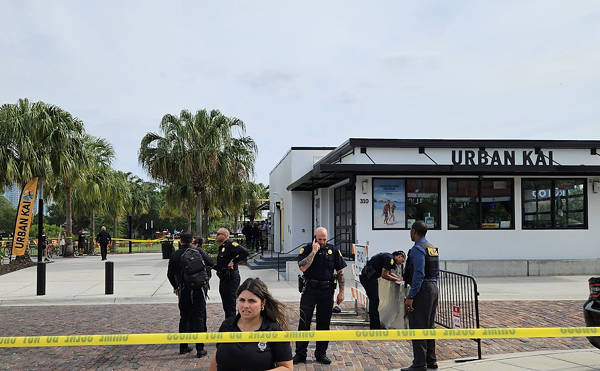In a world of code words and acronyms like PAC, 527 and CCE, Florida has the ultimate in stealth political weapons: the ECO.
Eighty-two different Electioneering Communications Organizations (their full name) spent $32 million statewide in 2006.
You know them from such warm-and-fuzzy names as All Children Matter, Florida Mainstreet Merchants, Floridians for Truth and Integrity in Government, Florida's Working Families and the Coalition to Protect the American Dream. Aww. Throw in some grazing sheep and little fresh candies and you just want to cuddle up in a blanket for a long winter's nap.
In reality, ECOs are shadow groups formed to promote special interests. The pay-no-attention-to-the-men-behind-the-curtains are — to name only a few — Wal-Mart, Publix, doctors, developers, trial lawyers and Big Sugar (which has nine different ECOs).
You can thank these fine folks for the plenitude of colorful and "informative" brochures you got in your mailbox, say in the Kim Berfield-Charlie Justice race for the Florida Senate. Or for those delightful recorded telephone calls you got during dinnertime last fall, telling you that a candidate favors pedophilia.
Created by legislators in 2004, ECOs are the latest kink in the twisted world of Florida political money. Their influence has come to dominate the landscape because of the way that state law shields them from limits placed on other campaigning groups and individuals.
Scott Randolph wants to change that.
I ran across the environmental-lawyer-turned-Democratic-state-representative from Orlando while writing our cover stories about the upcoming municipal elections (see stories). He has filed the only bill dealing with campaign reform for such groups, which flourish through a giant loophole in Florida's political rules. "It is a total evisceration of campaign finance laws," Randolph said.
You've more than likely heard of the so-called "527" groups, named after a provision in the tax code under which they are created. The Swift Boat Veterans for Truth is a 527. Under federal laws, 527s can't coordinate their attacks with parties; they must remain independent in the way they spend their money. They can attack or support candidates outside of the normal rules as long as they don't use the so-called "magic words:" "vote for" or "vote against."
Florida's ECOs go the 527s one better, Randolph said. They can coordinate their attacks with parties or other groups — simply because state law allows them to. The ECOs can take unlimited dollars (of the 20 biggest groups, the average contribution they received was $142,000) from special interests and flip them from one ECO to another, essentially laundering the cash. Randolph said that in a recent special election in South Florida, he tracked a contribution that was laundered through five different ECOs before it was used against Sen. Alex Villalobos.
Take Florida Mainstreet Merchants. Its top financiers include Walgreen's, Albertson's, Publix, CVS, Beall's department store, Chico's clothing and the Florida Retail Federation. Florida Mainstreet spent some of its money directly against and for candidates, although it is impossible to tell in which races it was involved because ECOs are not required to disclose how they spend their money, just who they hired to spend it. But Florida Mainstreet also gave large contributions to other political groups — such as $210,000 to the Republican Party and $93,500 to Citizens for Conservative Values, both of which could then spend that money in the same races or other races.
Abolishing ECOs would prove tough under free speech standards, so Randolph is taking aim at bringing them out into the sunlight. His legislation, House Bill 393, would:
• Limit ECOs from coordinating their activities with other political groups. If they coordinate, they would be subject to $5,000 contribution caps.
• Require them to report more details about how they spend their money, including listing which races and candidates in which they made expenditures.
• Prohibit ECOs from accepting contributions from other ECOs.
• Require any advertisements done by ECOs to disclose the top three contributors to that ECO.
Randolph is realistic about a first-termer's chances of getting legislation through the Republican-controlled House. "I'm hoping that parts of it will move" out of committees, he said. If you're inclined to strike a blow for more transparency in campaigning, you may want to find your state representative at myfloridahouse.gov and write/e-mail them to support House Bill 393.

















